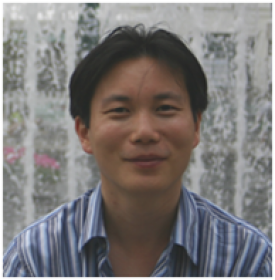
3:00 pm to 4:00 pm
Event Location: NSH 1507
Bio: Bohyung Han Associate Professor Dept. of Computer Science and Engineering POSTECH, Korea Bohyung Han received the B.S. and M.S. degrees from the Department of Computer Engineering at Seoul National University, Korea, in 1997 and 2000, respectively, and the Ph.D. degree from the Department of Computer Science at the University of Maryland, College Park, MD, USA, in 2005. He is currently an Associate Professor in the Department of Computer Science and Engineering at POSTECH, Korea. He is an Associate Editor for Computer Vision and Image Understanding and Machine Vision and Applications. He served as an Area Chair in NIPS 2015, ICCV 2015, ACCV 2012/2014 and WACV 2014, and as a Demo Chair in ACCV 2014. His current research interests include computer vision and machine learning.
Abstract: Abstract: I present novel supervised and semi-supervised semantic segmentation algorithms by learning deconvolution networks, which are recently investigated in POSTECH Computer Vision Lab. The deconvolution network is constructed on top of the convolutional layers adopted from VGG 16-layer net. It is composed of deconvolution and unpooling layers, which identify pixel-wise class labels and predict segmentation masks. Our supervised algorithm mitigates the limitations of the existing methods based on fully convolutional networks by integrating deep deconvolution network and proposal-wise prediction; our segmentation method typically identifies detailed structures and handles objects in multiple scales naturally. Also, our semi-supervised technique decouples classification and segmentation procedure, which facilitates to employ rich information of weak image-level annotations and achieve very nice performance even with very small number of training examples with strong annotations. Our networks demonstrate outstanding performance in PASCAL VOC 2012 dataset, especially in semi-supervised setting.
